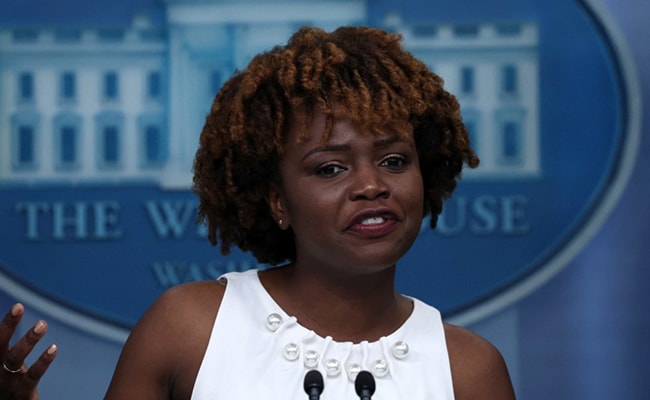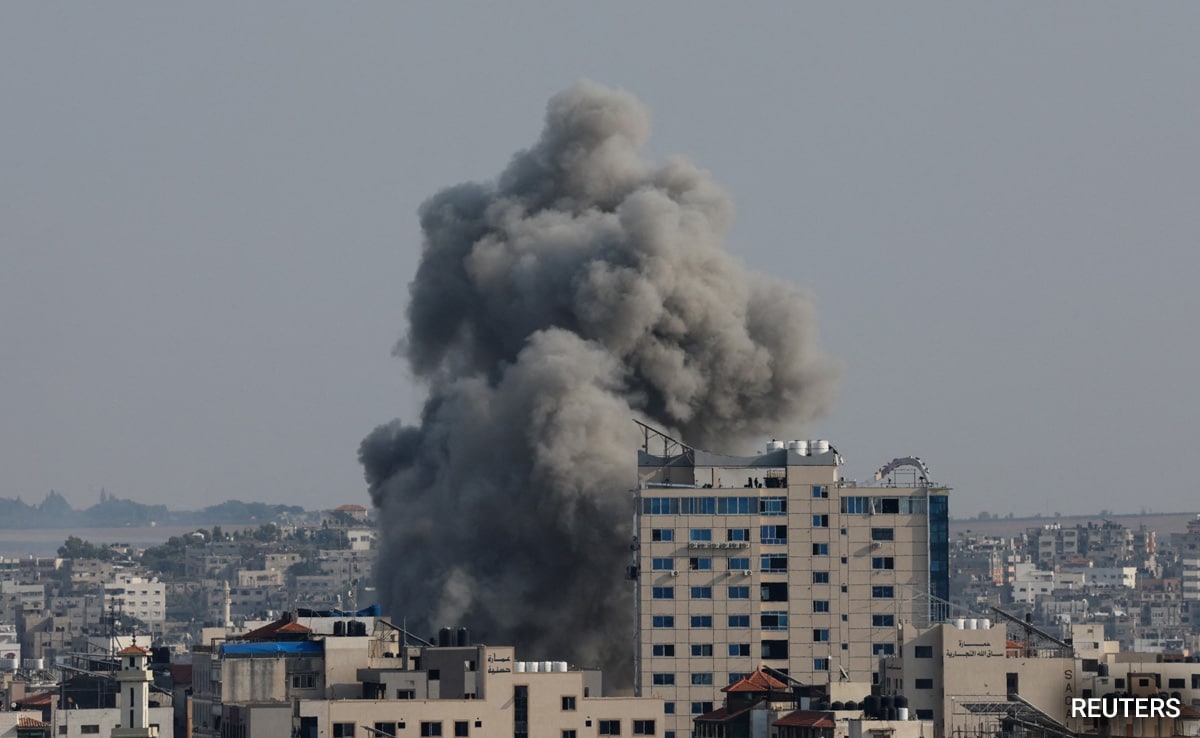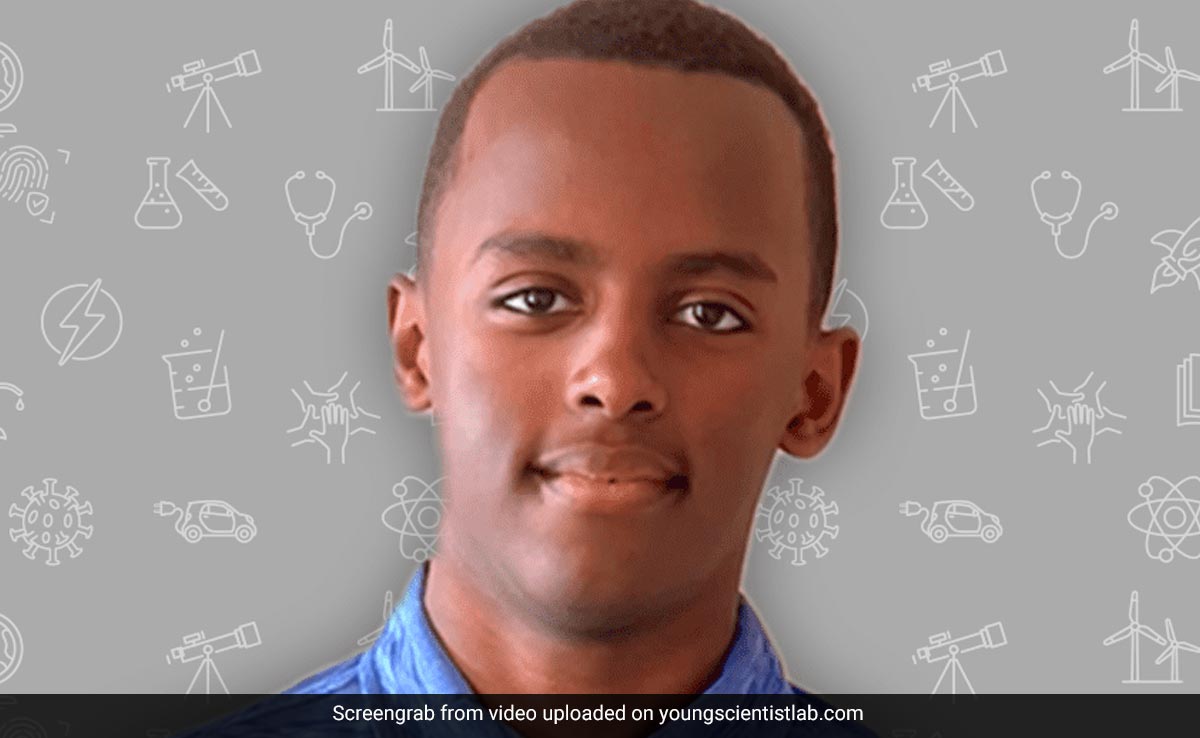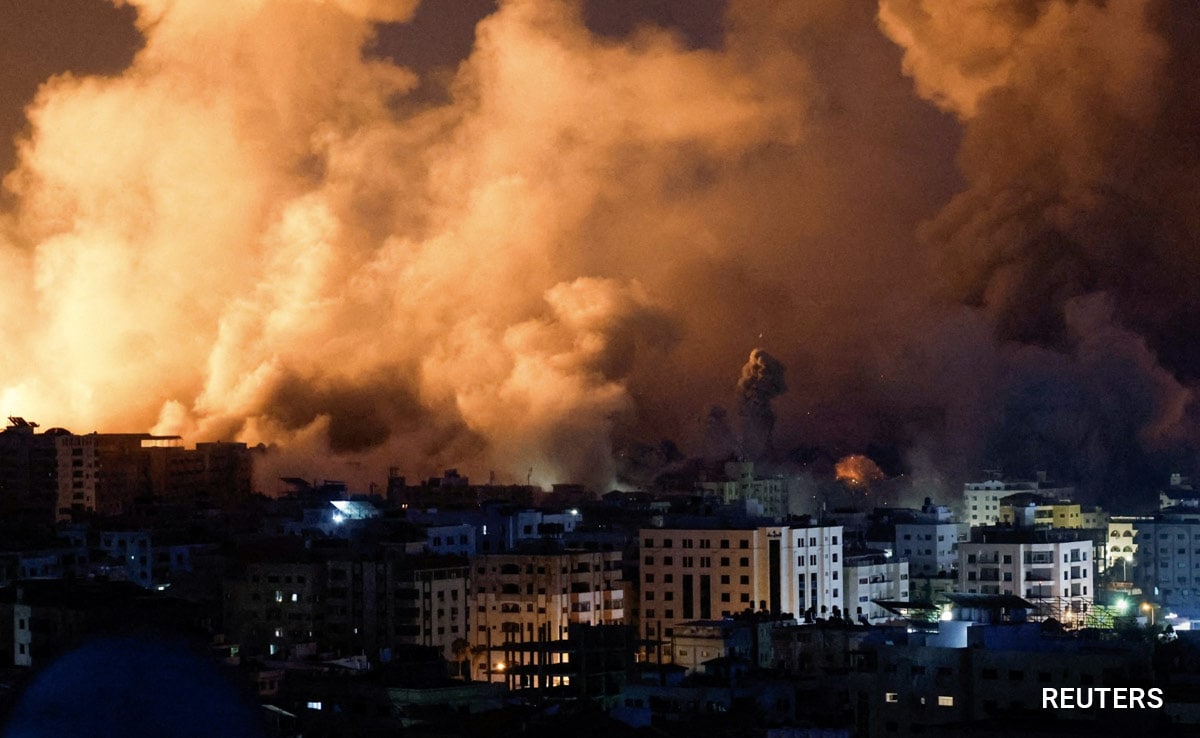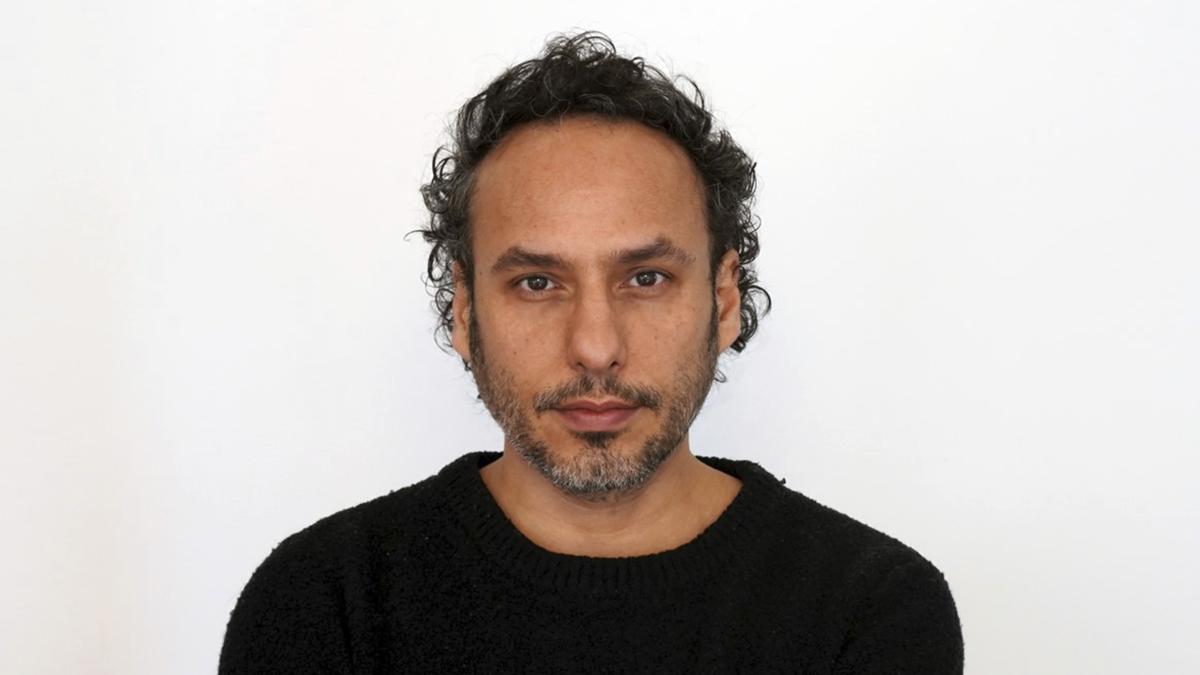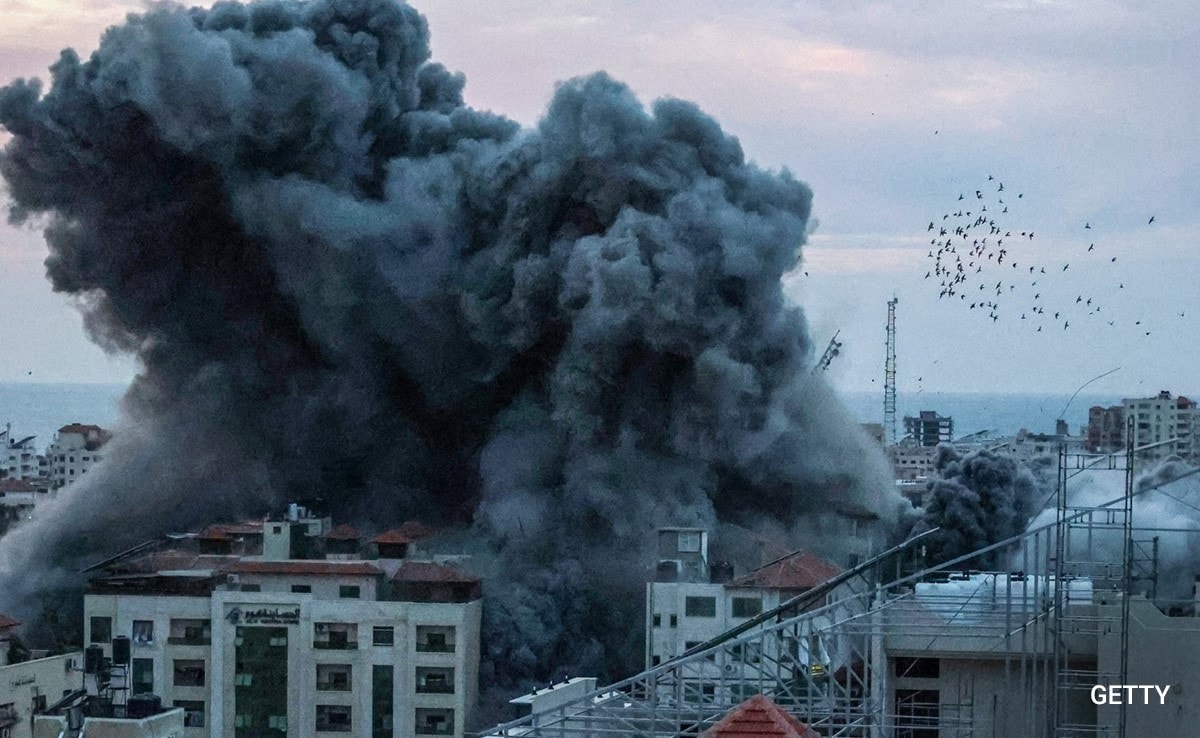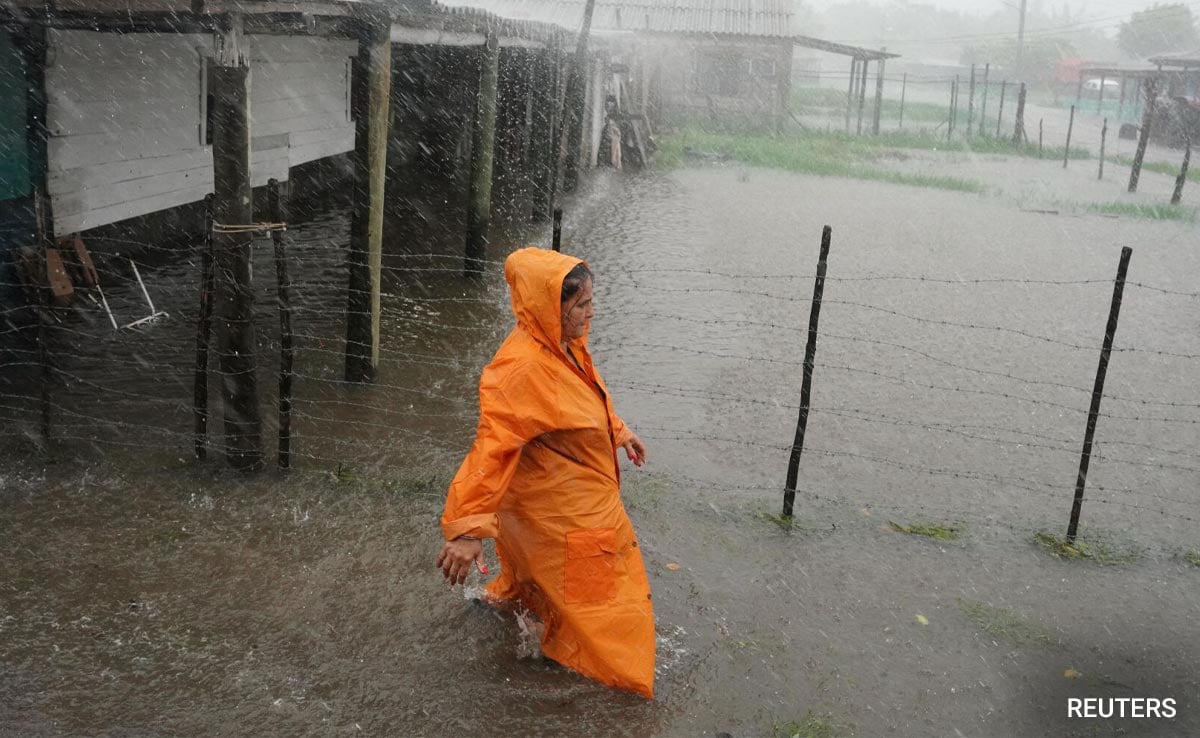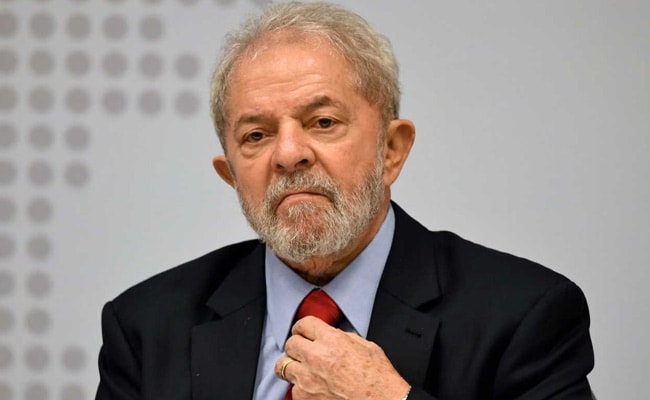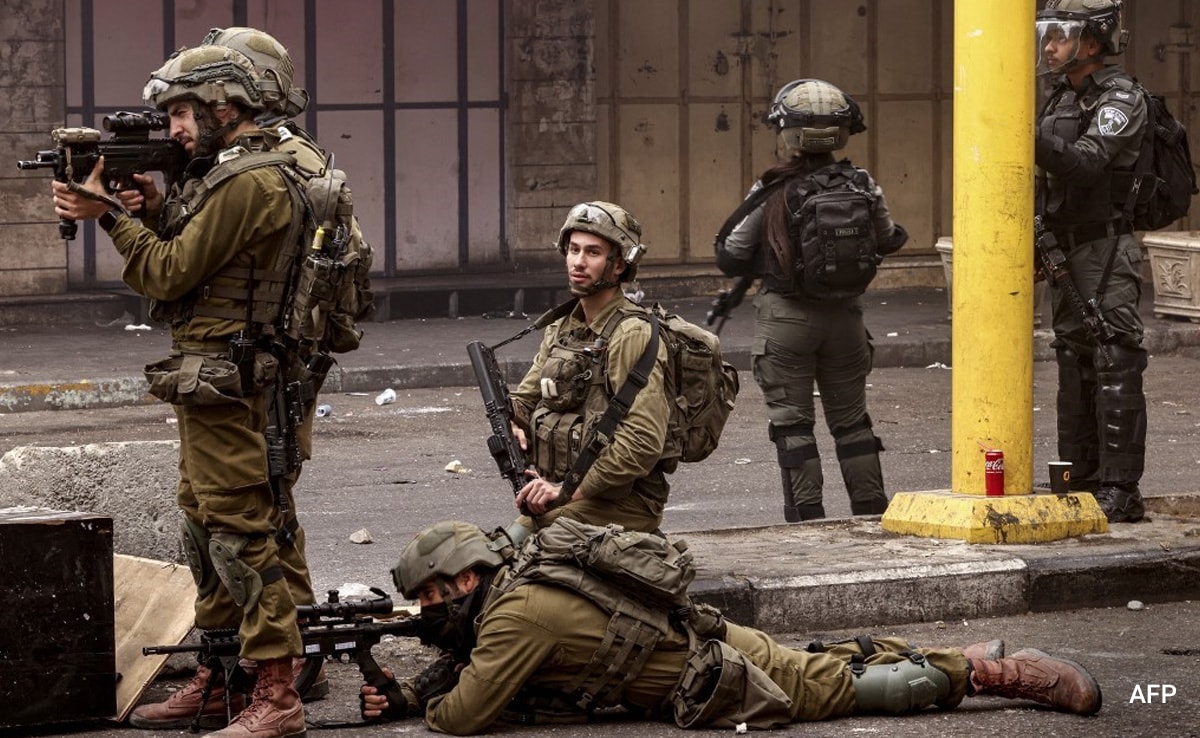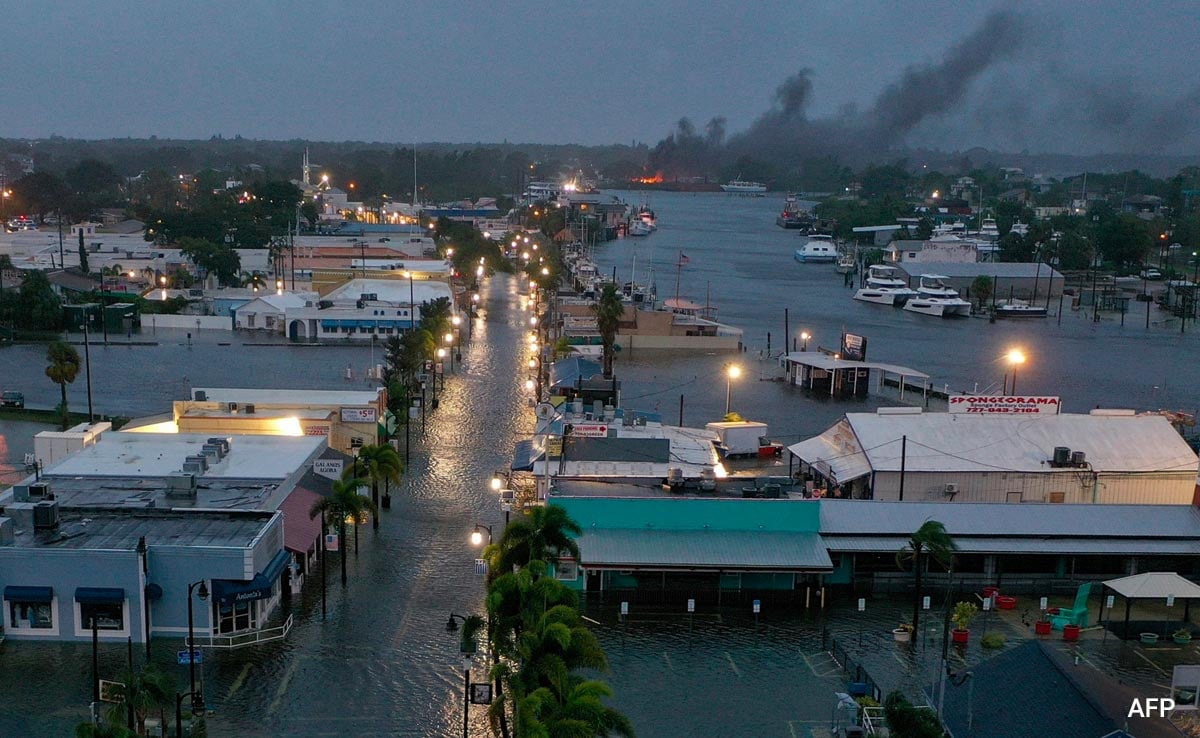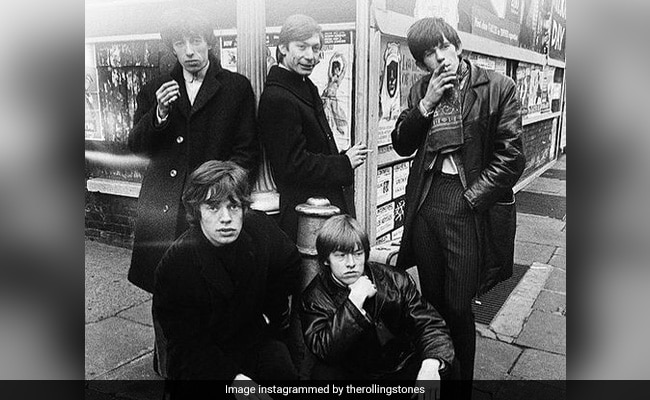The battle between Israel and Hamas now threatens to engulf the entire region.
A major conference of international business and finance leaders in the Saudi Arabian capital of Riyadh about economic transformation has been overshadowed by the only thing on everyone’s mind: war involving Israel.
The battle between Israel and Hamas, the group that attacked Israel on Oct. 7, killing as many as 1,400 people, now threatens to engulf the entire region and draw in the US and other powers.
Panel discussions, side-room conversations and media interviews at the Future Investment Initiative conference have been dominated by the war and its security and economic repercussions for the region and world.
“We need wisdom, we need to collaborate, to bring calm and to make sure that we de-escalate,” said Saudi Finance Minister Mohammed Al-Jadaan on Wednesday at a session focused on how countries can balance domestic policies with the need to strengthen cooperation with others.
“Before Oct. 7, a lot of de-escalation has happened, which brought a lot of hope for the region,” he said. “We don’t want the recent events to derail that so we are making a lot of efforts with our partners to make sure we go back to where we were.”
That encapsulates the focus of Saudi Arabia’s de facto ruler Crown Prince Mohammed bin Salman over the past year: winding down a war he started in neighboring Yemen against Iran-backed rebels, forging a rapprochement with arch-rival Iran – which was brokered by China – and embarking on negotiations with the US that were hoped to culminate in normalization of ties with Israel.
White Dove
MBS, as the crown prince is known, made a brief appearance after the conference’s opening ceremony on Tuesday, during which an image of a rising white dove beamed on the massive screens as 13-year-old Malakai Bayoh, a finalist on Britain’s Got Talent, sang Caruso by Lucio Dalla.
That came as representatives of world powers sparred at a United Nations Security Council meeting in New York on whether to call for a ceasefire or a pause in the war. Meanwhile, Israel pounded the Gaza Strip with the deadliest airstrikes since Hamas militants based in the enclave embarked on their attack.
As of Wednesday, more than 6,000 Palestinians have been killed and over 17,000 wounded in Israel’s retaliatory bombardment over the past 19 days, according to local officials. Nearly 1.4 million of Gaza’s population of about 2.3 million has been displaced.
The Saudi crown prince has repeatedly said regional stability is crucial for the success of his multi-trillion-dollar ‘Vision 2030’ plan to transform the Saudi economy – a move away from a near total reliance on oil exports.
It may be too early to assess the impact of the Israel-Hamas conflict on Saudi Arabia’s economy. A spike in oil prices could translate into a short-term boon for the world’s largest oil exporter but a wider and more protracted conflict could delay and even derail Vision 2030-linked goals like luring substantial foreign direct investment, expanding the Saudi private sector’s share of the gross domestic product and attracting more international tourists this winter.
Economy Shrinking
Before the outbreak of war, the World Bank forecast that the Saudi gross domestic product would shrink by 0.9% in 2023 after expanding by 8.7% in 2022, when it was the fastest-growing economy among the Group of 20 clubs of nations.
“What has happened in Saudi Arabia over the past five years has changed the trajectory of the Middle East,” said Jared Kushner, son-in-law of former US president Donald Trump and head of Saudi-backed Affinity Partners, during a panel discussion with former Italian premier Matteo Renzi.
He said “forces of evil” – a reference to Iran and its proxies in the region – launched the Oct. 7 attack to disrupt Saudi Arabia’s ascent and block its efforts to normalize ties with Israel, which he described as the apogee of the Abraham Accords that he shepherded in 2020 and led to the United Arab Emirates and Bahrain to officially recognize the Jewish state.
“When the forces of good are winning, the forces of evil will try to stop them,” he said.
Waiting for response to load…


